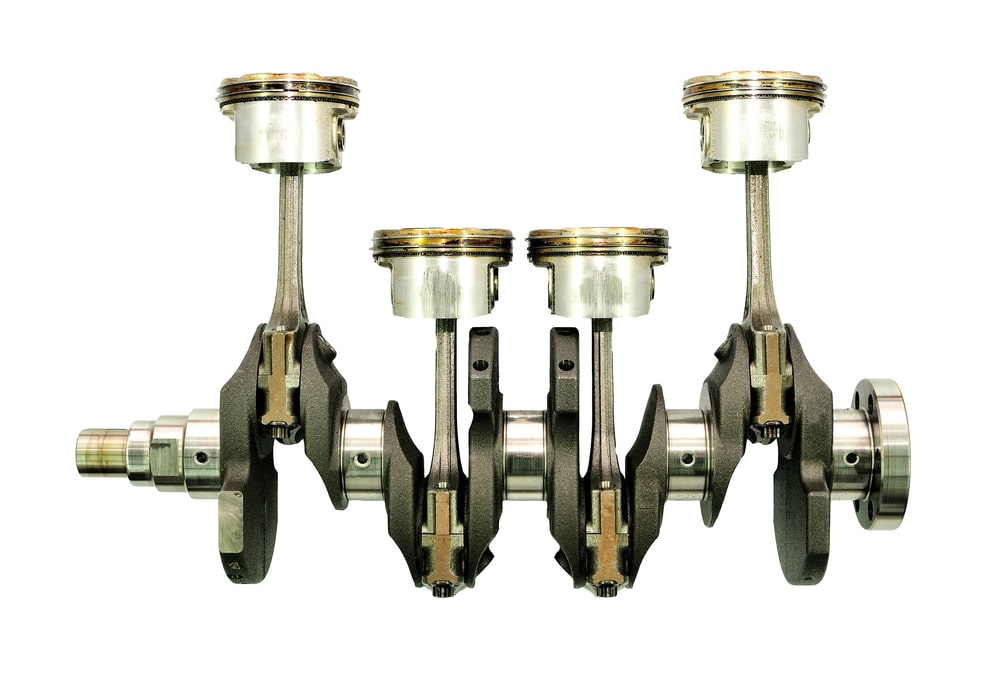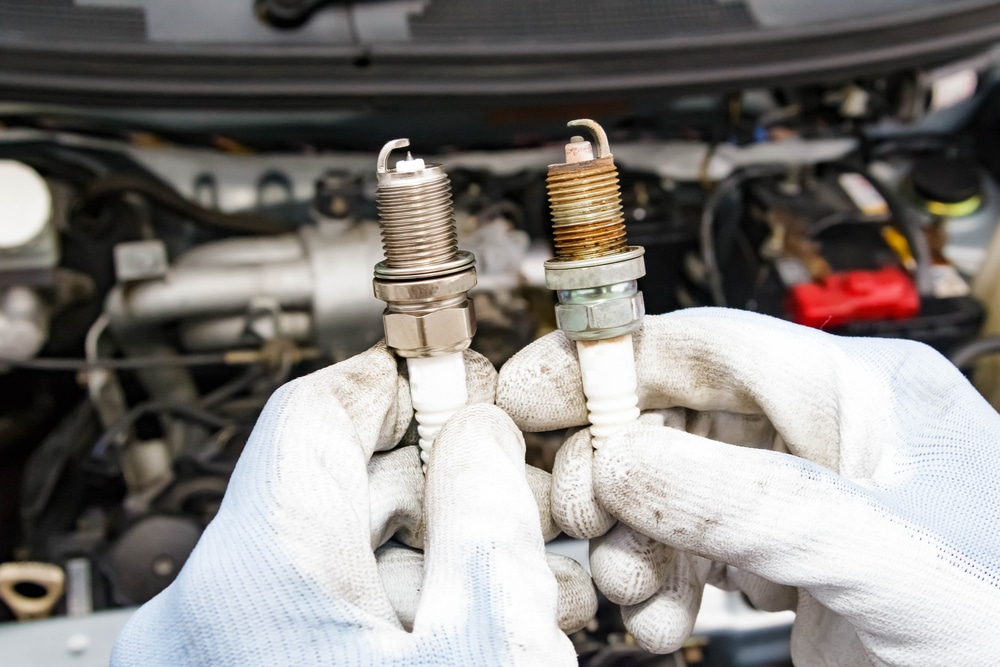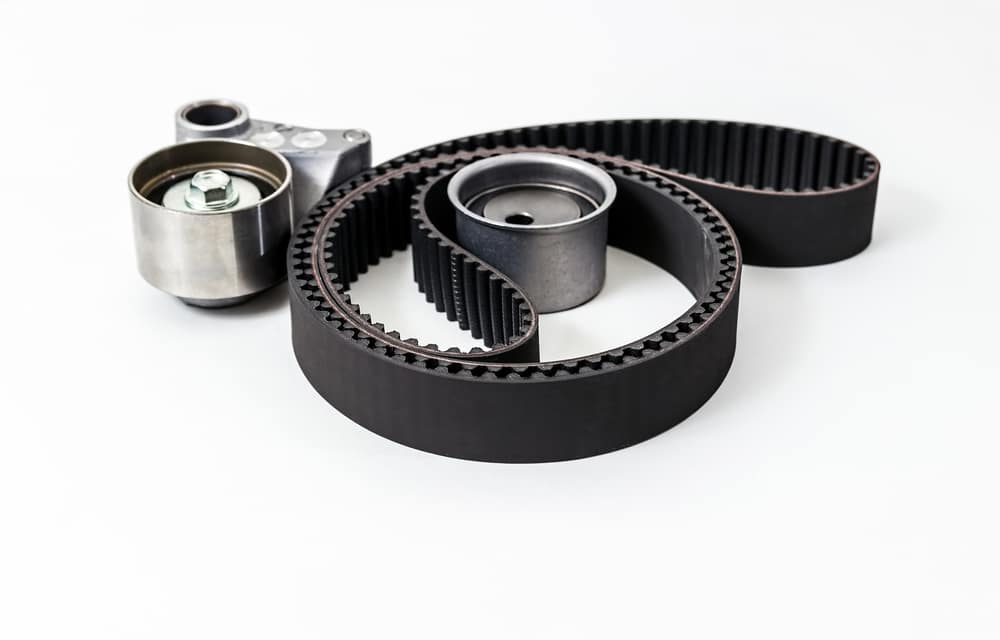Mercedes-Benz Tyre Pressure
As a conscientious vehicle owner, ensuring proper tyre pressure is crucial. Unfortunately, tyre maintenance is often overlooked. If you own a Mercedes-Benz, it’s essential to understand the recommended tyre pressure and other factors involved in inspecting and caring for your tyres.
At Fitch Autos, we understand the importance of correct tyre pressure for the safety, performance, fuel efficiency, and tyre longevity for your Mercedes-Benz. It ensures proper grip, responsive handling, and optimal fuel consumption. Maintaining the correct pressure also promotes even tread wear and a smoother ride. Regularly checking and maintaining the recommended tyre pressure is crucial for these benefits and overall driving safety.
In this blog post, we aim to provide you with all the necessary information on maintaining the correct tyre pressure for your Mercedes-Benz. Our helpful guide will equip you with all the knowledge you need to keep your tyres in top condition.
Let’s get into it!

Maintaining Correct Tyre Pressure on a Mercedes-Benz
To ensure optimal handling, fuel efficiency, comfort, safety and the longevity of your Mercedes-Benz tyres, it is crucial to maintain the right tyre pressure. Running on under-inflated tyres can cause faster wear and tear, leading to a higher risk of punctures and decreased durability. It also increases fuel consumption due to added roll resistance. Moreover, if your tyre is underinflated by 30%, it can raise the danger of hydroplaning, on wet roads.
Properly inflating your Mercedes-Benz tyres is crucial for optimal handling and traction. Uneven tread wear caused by underinflation can negatively impact the vehicle’s responsiveness and decrease driving safety and enjoyment.
If you’re unsure about how to check and top up your Mercedes’ tyre pressures, we suggest visiting Fitch Autos. Our team of skilled technicians is dedicated to offering exceptional service to Mercedes-Benz owners in Brownhill. Contact us now to book an appointment.
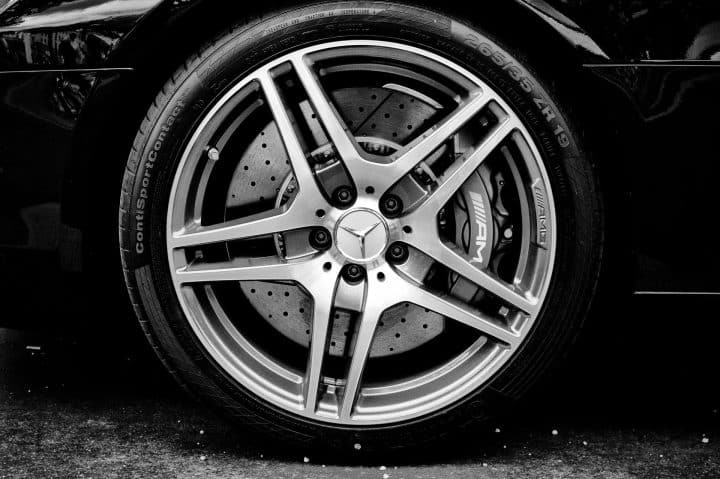
Mercedes-Benz Tyre Pressure: What You Should Know
When it comes to Mercedes tyre pressure, here’s what you should know:
Recommended Tyre Pressure: Refer to your vehicle’s owner’s manual or the sticker located on the side of the driver’s door or near the fuel cap for the recommended tyre pressure. It may vary depending on factors like vehicle model, tyre size, and load capacity.
Front and Rear Pressure: Mercedes-Benz often specifies different tyre pressures for the front and rear tyres. Ensure you check and maintain the correct pressure for each set of tyres.
Cold Tyre Pressure: Tyre pressure should be checked when the tyres are cold, as the pressure increases as they heat up during driving. It is best to measure the pressure before driving or after the vehicle has been parked for a while.
Regular Pressure Checks: Regularly inspect and adjust the tyre pressure, ideally on a monthly basis or before long trips. This helps maintain optimal performance, safety, and tyre longevity.
Tyre Pressure Monitoring System (TPMS): Many Mercedes-Benz models are now equipped with a TPMS, which alerts you if tyre pressure is too low. Familiarise yourself with the TPMS warning symbols and response procedures outlined in the owner’s manual.
Seasonal Adjustments: Consider adjusting tyre pressure based on seasonal changes. In colder temperatures, tyre pressure tends to decrease, so it may need to be slightly increased to compensate.
Remember, maintaining the correct tyre pressure is crucial for safety, optimal performance, and tyre longevity. By adhering to the recommended pressure values and conducting regular checks, you can ensure a smooth and safe driving experience in your Mercedes-Benz.
If you’re still unsure about the appropriate tyre pressure for your Mercedes, don’t hesitate to speak to our team at Fitch Autos.
How to Check Your Mercedes-Benz Tyre Pressure
Follow these simple steps to check the tyre pressure of your Mercedes-Benz:
- Find the recommended tyre pressure in the owner’s manual or on the sticker inside the drivers door or fuel cap.
- Get a tyre pressure gauge, available at most petrol stations or they can be purchased for home use.
- Park the car on a level surface, put the parking brake on and make sure the tyres are cool.
- Take off the valve cap from one tyre.
- Attach the gauge to the valve and press down to get a reading.
- Compare the reading with the recommended tyre pressure.
- If the pressure is too low, inflate the tyres until they reach the correct pressure.
- If the pressure is too high, deflate the tyres to reach the recommended pressure.
- Put the valve cap back on.
- Repeat this process for all tyres, not forgetting the spare tyre.
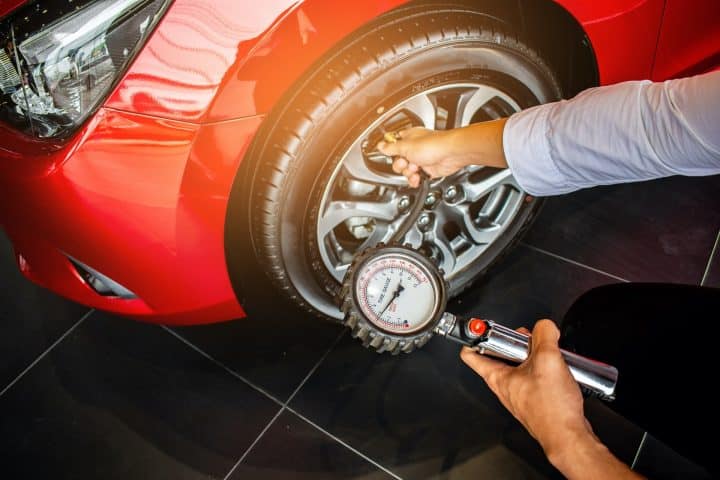
Alternatively, newer Mercedes-Benz models have a useful feature that consistently checks the air pressure levels in your vehicle’s tyres – the Tyre Pressure Monitoring System (TPMS). It alerts you if there is low tyre pressure and allows you to check the pressure of each tyre independently.
Regularly checking and maintaining the proper tyre pressure is crucial for safety and optimal performance. By following these steps, you can ensure that your Mercedes-Benz’s tyres are properly inflated and ready for the road.
If you’re uncertain about the correct procedure, it’s best to seek advice from a reliable Mercedes specialist garage like Fitch Autos. Our friendly team can assist you in ensuring that your vehicle’s tyres are properly inflated to ensure maximum performance and safety. Contact us today.
How Reliable Is the Mercedes-Benz Tyre Pressure Monitoring System?
At Fitch Autos, we can assist you in ensuring that your Mercedes-Benz Tyre Pressure Monitoring System (TPMS) is functioning properly and providing accurate tyre pressure readings through our TPMS calibration services.
Our focus is on providing exceptional maintenance and repair services for Mercedes-Benz vehicles. Our team of technicians excels at checking and adjusting the tyre pressure to the recommended level, ensuring a safe and comfortable ride for you on the road.
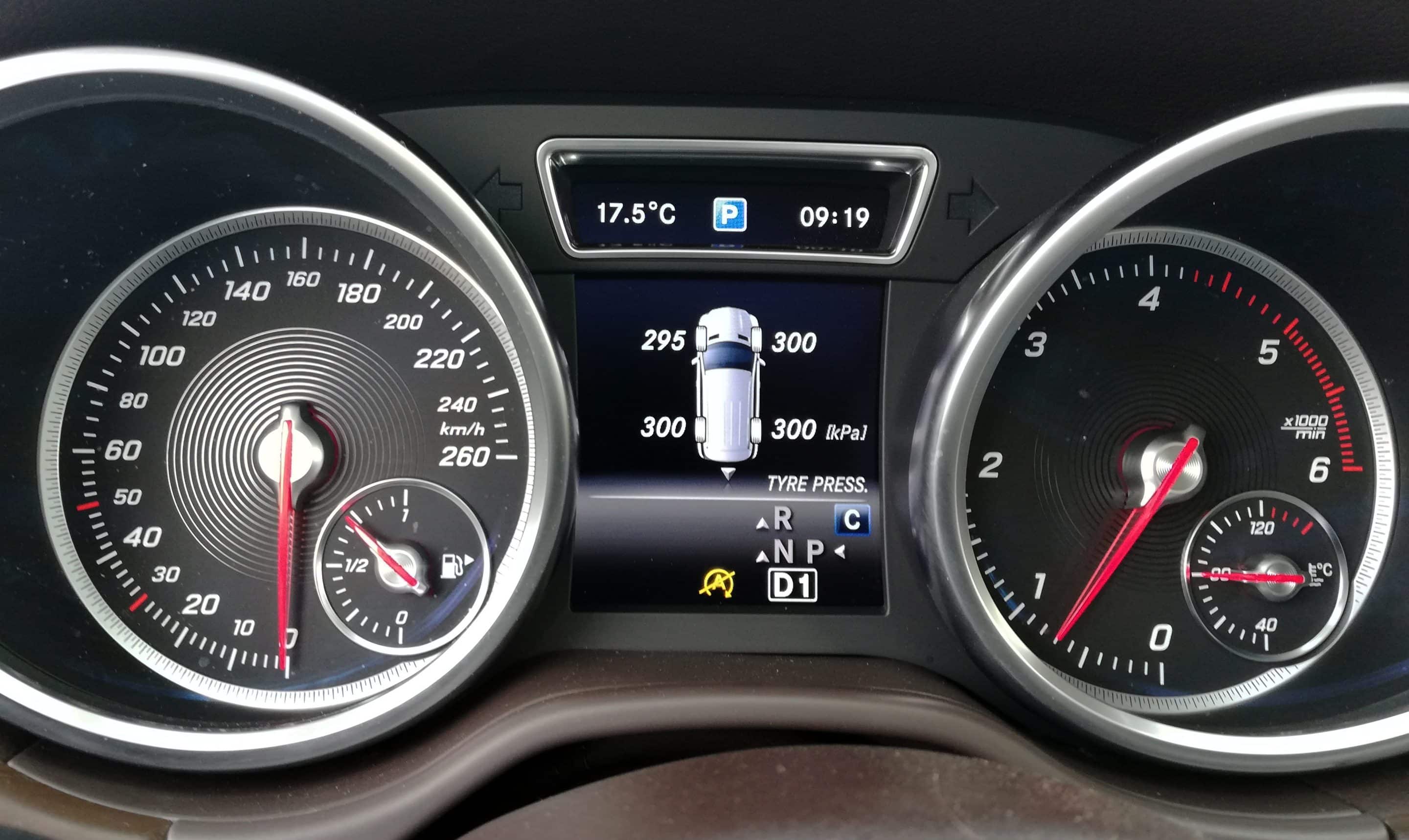
Adapting Tyre Pressure to Weather and Road Conditions
Did you know that the weather and temperature can affect your tyre pressure? Cooler weather tends to lower pressure, while warmer weather tends to increase it.
Monitoring your tyre pressure is crucial as it can fluctuate during usage. Low pressure can result in increased fuel consumption and heat build-up in the rubber, which can shorten the lifespan of your tyres. Whilst driving at high speeds on dry roads under the sun can increase tyre pressure by up to 10 PSI (measured in pounds per square inch).
To reduce any potential tyre issues caused by temperature changes, we advise you to check your tyre pressure once a month. If you’re unsure about the state or pressure of your tyres, don’t hesitate to contact us at Fitch Autos for help.
Maintaining Mercedes-Benz Tyres & Extending Their Lifespan
Maintaining your tyres properly is important for a smooth and secure driving experience. To ensure your tyres remain in excellent condition, follow these straightforward tips:
- Ensure your tyres are safe: To maintain the safety of your tyres, inspect them for any bulges, cuts, or foreign objects that may require the assistance of a mechanic. In the event that you detect a puncture while driving, pull over and switch to your spare tyre.
- Take a look at your tyre tread: To avoid facing fines of up to £2,500 and points on your licence, it is important to maintain a tyre tread depth of at least 1.6mm. If your tyres are near or below this limit, you must replace them for safety reasons.
- Choose the right tyres: A lot of people choose all-weather tyres because of their dependable performance all year round. Nevertheless, several European countries that experience extreme weather changes may still require drivers to switch between summer and winter tyres.
- Make sure your wheels are aligned: When wheels are not properly aligned, it can result in uneven wear and tear on the tyres. This can cause damage to the vehicle, increase fuel consumption, and even compromise control of the vehicle. It is important to ensure proper alignment to avoid these issues. We can help with this here at Fitch Autos.
- Observe the maximum load: To ensure proper vehicle handling and to prevent excessive tyre wear, avoid overloading your car. Adhering to the load limit specified by the tyre load index is key to achieving this.
- Carefully avoid kerbs: Damage to your tyres can be caused by hitting or mounting kerbs accidentally. Take care when parking, ensuring that your tyres do not make contact with the kerb.
- Drive safely: Try to avoid lots of sudden braking. Instead, gradually decrease acceleration and make smooth transitions. Additionally, try to steer clear of bumps, potholes, and uneven roads and of course, reduce your speed when approaching speed bumps.
If you’re unsure about checking the tyres on your Mercedes-Benz, Fitch Autos is here to help. Our team has extensive knowledge in servicing Mercedes-Benz vehicles, and we are more than happy to assist you with your tyre maintenance and wheel alignment needs. Call us and our team will be happy to book you in for an appointment.
